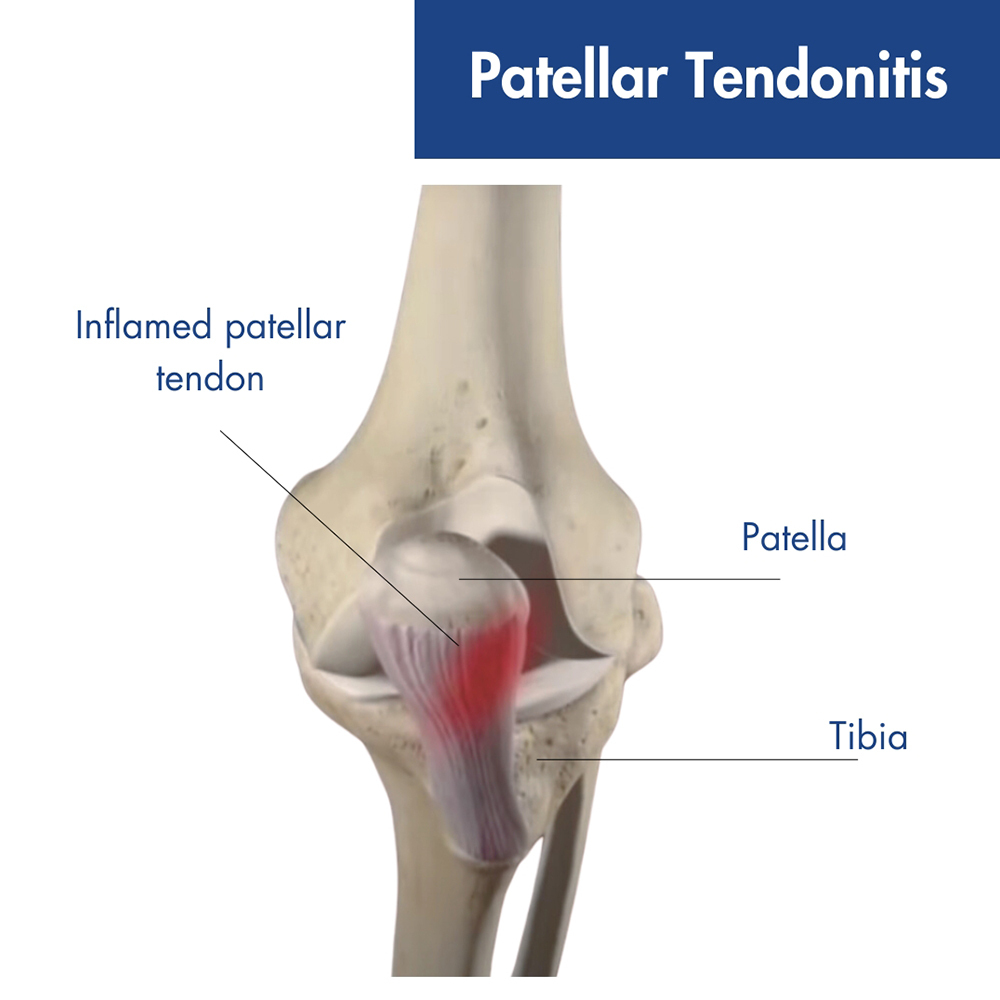We’re pleased to announce that Pain Physicians of Wisconsin is now Pro Spine Pain.
We’re pleased to announce that Pain Physicians of Wisconsin is now Pro Spine Pain.
 Patellar tendonitis is a painful condition in the knee tendon that can be minimized if addressed promptly. However, left untreated, it may escalate into chronic pain and disability. Pro Spine & Pain serves Wisconsin with locations in Kenosha, Waukesha, Layton, Franklin, and Madison, offering specialized treatment for patellar tendonitis to alleviate your symptoms and speed up your recovery. Seeking medical attention at the first sign of knee pain is crucial to prevent long-term consequences.
Patellar tendonitis is a painful condition in the knee tendon that can be minimized if addressed promptly. However, left untreated, it may escalate into chronic pain and disability. Pro Spine & Pain serves Wisconsin with locations in Kenosha, Waukesha, Layton, Franklin, and Madison, offering specialized treatment for patellar tendonitis to alleviate your symptoms and speed up your recovery. Seeking medical attention at the first sign of knee pain is crucial to prevent long-term consequences.
The knee relies on various tendons and ligaments for support, among which the patellar tendon plays a vital role in stabilizing the kneecap and facilitating smooth movement. Together with the quadriceps muscles in the front of the thigh, this tendon enables activities such as running, jumping, kicking, and walking. For this reason, sports medicine specialists often see this injury. Athletes—particularly those engaged in sports involving repetitive jumping like volleyball or basketball—are prone to patella tendon injuries or tears, earning the condition the nickname “jumper’s knee.”
However, patellar tendonitis can affect individuals regardless of their involvement in jumping sports. At Pro Spine & Pain, our pain management experts utilize cutting-edge technology and tools to pinpoint the source of your pain, ensuring accurate diagnosis and effective treatment. Don’t delay seeking assistance; early intervention is key to managing patellar tendonitis and preventing further complications.
The main symptom of patellar tendonitis is pain, typically felt between the kneecap and shin bone. It is often exacerbated during physical activity but can persist even at rest. Many athletes experience impaired performance due to this pain. If left untreated, the pain may escalate, affecting activities like stair climbing or rising from a chair.
While rest and ice may provide temporary relief, consulting specialists at Pro Spine & Pain is advisable, especially if the discomfort persists or worsens over time. Redness in addition to pain and swelling may indicate potential complications. If your daily activities are consistently disrupted by pain, seeking medical attention is recommended for proper evaluation and management.
While patellar tendonitis can affect anyone, certain factors may increase susceptibility to this condition.
Various factors contribute to the likelihood of requiring treatment for patellar tendonitis:
Ignoring the pain can worsen patellar tendonitis, potentially leading to chronic tendinopathy. Small or partial tears in the patellar tendon may progress, eventually resulting in complete tendon separation from the kneecap, a condition that requires surgery. If the patellar tendon ruptures or tears completely, you will experience a popping sound, bruising, significant pain, difficulty walking, and difficulty in straightening the knee. It’s crucial to heed your body’s signals and communicate your symptoms to your Pro Spine & Pain specialist for appropriate management without the need for surgery.
Your physician will evaluate your knee, legs, and gait, and may request imaging tests to diagnose patellar tears or tendonitis accurately. Unless the tears are extensive, the initial approach to treatment typically emphasizes conservative and non-invasive methods before considering more aggressive interventions.
Various treatment options exist, which will be tailored to your individual needs:
Early intervention is crucial for optimal outcomes in patellar tendonitis treatment. Contact your Pro Spine & Pain specialist promptly to address patellar tendon pain effectively and get you back to your sports and other daily activities.

Thomas Stauss, MD, completed both his undergraduate and medical studies at the esteemed University of Wisconsin in Madison. Dr. Stauss values having access to a wide array of cutting-edge treatment options, ensuring effective relief for his patients' discomfort and a significant enhancement in their quality of life. More specifically, he specializes in utilizing implanted devices to manage chronic pain. Dr. Stauss’s primary objective is to uphold the dignity of each patient while delivering ethical and professional services.
More about Dr. Stauss